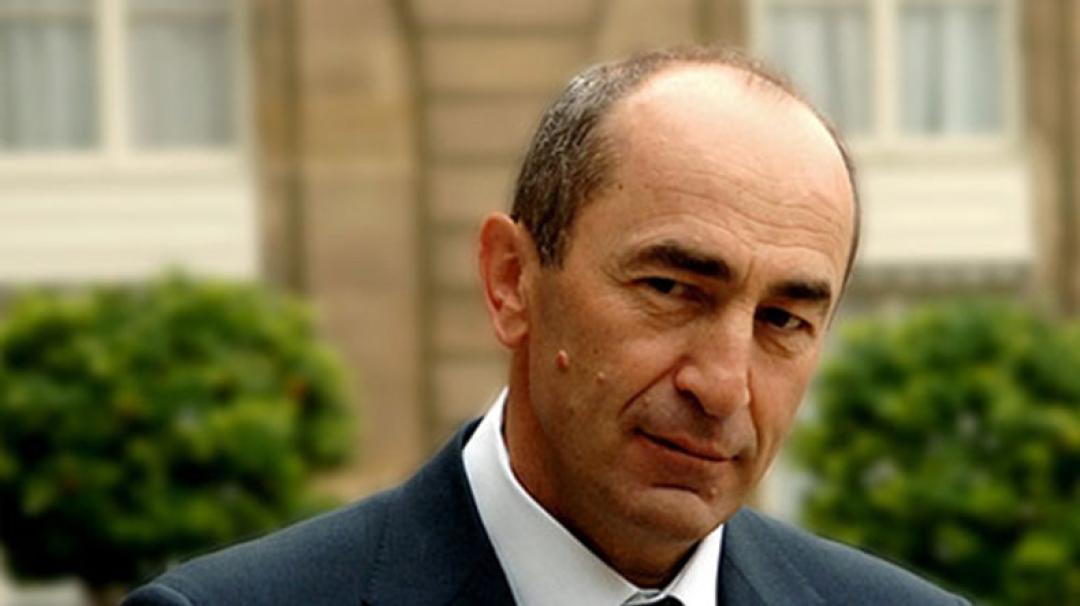
Judge presiding over Kocharyan case charged with forgery; Kocharyan reveals his political strategy

On 30 July, Davit Grigoryan, the judge who released the former Armenian President Robert Kocharyan on bail on 18 May was charged with forgery by the Armenian Special Investigation Service (SIS), reported the Armenian Radio Free Europe.
The Prosecutor-General’s Office released more details of the criminal case saying that Grigoryan committed official forgery of protocols relating to the hearings at which he was not even physically present. The office categorically denied that the brought up charges were in connection to Grigoryan’s ruling in the Kocharyan trial since the investigation took place in February.
On the same day, Robert Kocharyan held an interview with Golos Armenii (Voice of Armenia) where he revealed his plan on how to consolidate the political opposition in Armenia. He said that his team’s vision is built upon an ideology based on the logic of consensus minus one. “I guess there will be different centers deriving their power from different sources, but an active cooperation among them will be definitely secured. And the society’s politically active intellectual segment, by the way, will be centered just there. What the country needs is a consolidation of sober-minded political forces. And that process will unconditionally lead to the radicalization of the parliamentary opposition, which may otherwise lose its own electorate. The opposition will complete its consolidation and partnership process in autumn to pave the way for a coordinated and large-scale political campaign,” he announced.
He also provoked the Pashinyan government. “All I see is that the state apparatus does not serve the country’s development programs but the business and caprices of one person and stems from his extremely primitive worldview. The efforts to isolate me at any cost by these made-up accusations raise many questions, if it is a vendetta the psychological state of the Prime Minister must worry the people,” he said, adding that “the issue of the authorities will be settled in the street…through snap parliamentary elections.”
Asked to comment on the conclusion made by a group of political analysts that his arrest is connected to the weakening of Russia’s influence in Armenia, Kocharyan responded: “The acceptable and understandable corridor of complementarity in foreign policy has rather narrowed for Armenia. It greatly complicates the life of the authorities who changed their geopolitical orientations in one night. It is clear that they continue to think in a way they used to but they are showing quite another thing which not always succeeds. This results in political hypocrisy, blurred geopolitical guidelines, permanent failures and as a result incomplete relations with partners. It is impossible to succeed in a thing you do not believe in or you are not convinced off.”
Robert Kocharyan was president of Armenia from 1998 to 2008, having previously served as president of the unrecognized Nagorno-Karabakh Republic from 1994 to 1997. The prosecution of the second president began after the “Velvet Revolution” in Armenia. He is currently under investigation for the “overthrow of the constitutional order” in the context of the 2008 presidential election. In March 2008, when Kocharyan was the head of state, he suppressed mass protests against electoral fraud. Ten people were killed and hundreds more injured in clashes on the streets of Yerevan. Today's prime minister, Nikol Pashinyan, was arrested there as one of the organizers of the protests and spent two years in prison as a consequence.
See Also


Simonyan: “Armenia Should Trade with Turkey and Azerbaijan Instead of Closing Borders”

Mirzoyan Meets US Deputy Assistant Secretary Joshua Huck

Azerbaijani President Holds Talks with UAE and German Business Delegations on Economic Cooperation

Grigoryan Confirms Armenia’s Readiness to Dissolve OSCE Minsk Group Upon Peace Treaty Signing

